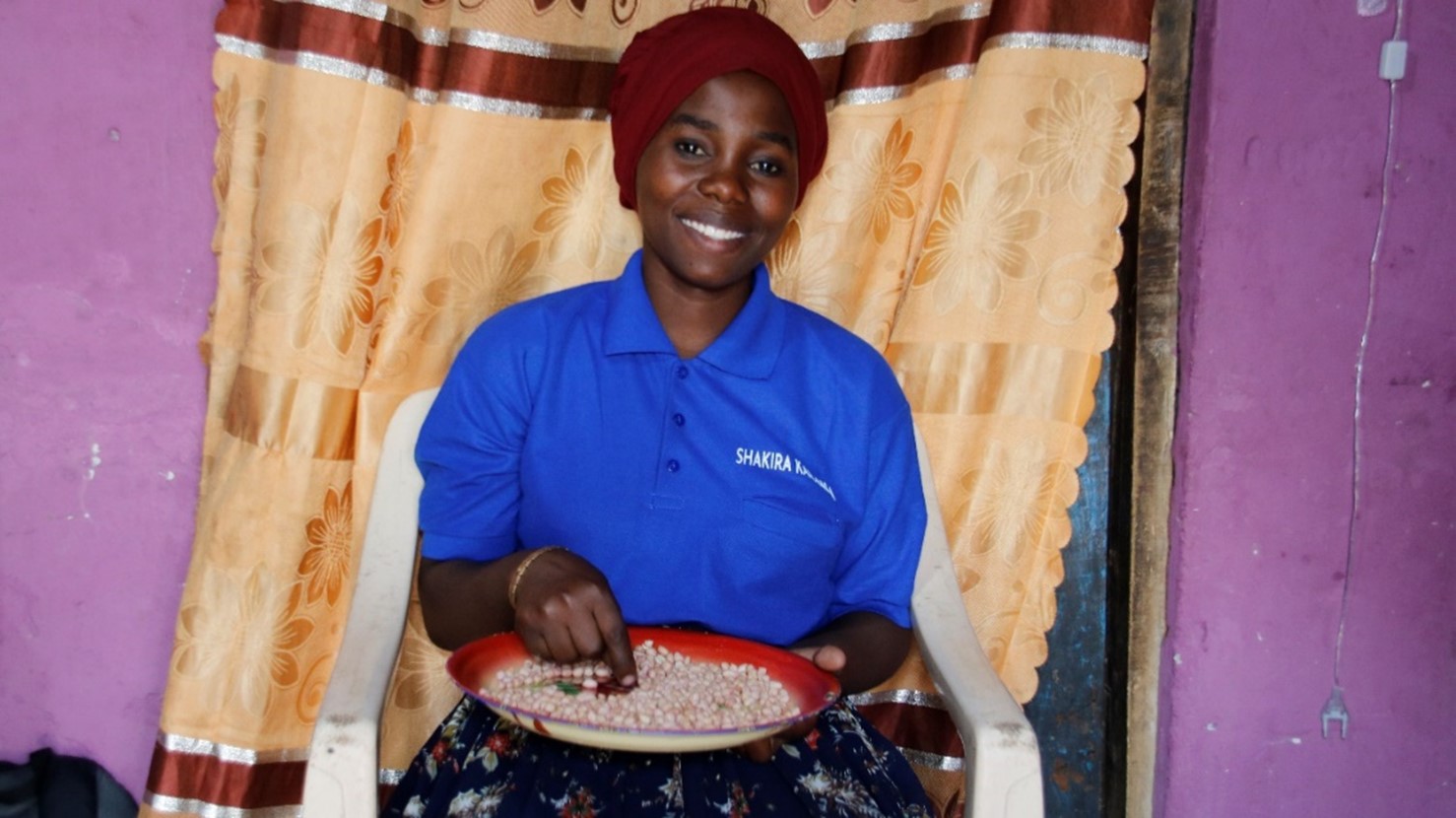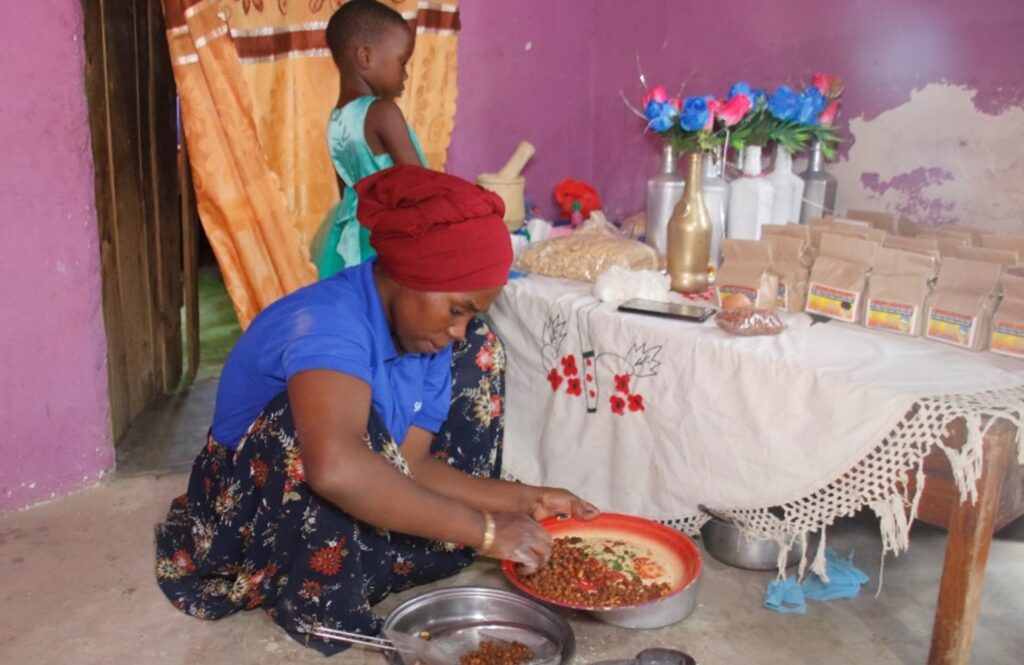Agness John, Senior Technical Officer, Communications & Knowledge Management, HIV Programs, FHI 360
At age 14, Shakira experienced a great tragedy. Her mother left their home in Tanzania while her father was in prison, leaving her, the eldest child, with seven siblings to care for on her own. The predicament led her to engage in transactional sex to support herself and her siblings.
“My seven siblings were looking up to me for their meals, school supplies, medical needs. Given such responsibilities, I was forced to do various entrepreneurial activities such as walking around selling vegetables and sardines to cover our home expenses. The money obtained from my business was not enough, as it only brought an income return of 1,000 shillings [US$0.40] a day. If it was a bad business day, I returned home empty-handed. To ensure that my family did not miss a meal, I was forced to engage in transactional sex so that the little money I got, I could use to support my siblings who were now my sole responsibility.”
Like many adolescent girls and young women (AGYW) in Tanzania, Shakira had limited knowledge about sexual and reproductive health, including the risks of unprotected sex and how to protect herself from unintended pregnancy and sexually transmitted infections. Shakira said, “I had no knowledge or awareness on family planning methods. That’s why I became a mother at the age of 15.”
Now age 19, Shakira lives in Nyihogo village, Kahama district in Shinyanga. Shakira’s experience is not uncommon among AGYW in Tanzania. Statistics show that 27 percent of teenagers (15–19 years) have had a child or are pregnant (Tanzania Demographic and Health Survey and Malaria Indicator Survey, 2015–16). Also, the HIV prevalence among AGYW is 15.3 percent, compared to 6.6 percent among their male counterparts (Tanzania HIV Impact Survey, 2016–17).
Since 2015, PEPFAR has funded the DREAMS initiative to help girls like Shakira stay safe from HIV and other risks. Agness Junga, the Meeting Targets and Maintaining Epidemic Control (EpiC) DREAMS coordinator in the Shinyanga region, said, “The DREAMS initiative was introduced to 14 countries in the world, Tanzania being among them, to help AGYW to stay AIDS-free. This is because statistics show that the HIV prevalence rate is high among females ages 15 to 24 years compared to that of their male counterparts.”
In Tanzania, the FHI 360-led EpiC project is implementing DREAMS programming in the Iringa and Shinyanga regions. EpiC employs a variety of evidence-based approaches and interventions to empower AGYW, reduce their vulnerability to HIV and violence, and protect their health. Among the DREAMS components being implemented in Tanzania are: (1) establishment of safe spaces and delivery of health services, including screenings of AGYW for HIV and sexually transmitted infections (STIs), family planning services, gender-based violence screening, and pre-exposure prophylaxis (PrEP); (2) behavior modification sessions with learning modules about HIV and STI prevention, family planning, gender-based violence, and life skills; (3) scale-up of the Families Matter! curriculum to capacitate AGYW parents; (4) implementation of the SASA! community mobilization approach to challenge norms that increase risk of violence and HIV among AGYW; and (5) an economic strengthening intervention, WORTH plus, with training on savings and loans, entrepreneurship skills, and leadership skills.
Through DREAMS, AGYW such as Shakira have been empowered and improved their lives. Shakira is now aware of her of her sexual and reproductive health needs and rights. She is also more financially stable as a result of her participation in WORTH plus, which has changed her life, as well as that of her daughter and siblings.
Recounting her milestones, Shakira shares, “In DREAMS’ WORTH plus group session, I learned about family planning, sexual and reproductive health, HIV prevention, entrepreneurship, and business management skills, savings, and loaning schemes. I borrowed 60,000 (US$25) from the group to start making decoration bottles, roasted peanuts, baobab fruits, potato crisps, and children’s nutritious flour. My business net worth increased from 60,000 (US$25) to 250,000 (US$110) with daily profit of 8,000 (US$4).”
Since EpiC began implementing WORTH plus in February 2020, a total of 38,000 AGYW have been reached through 1,100 groups formed and registered with local government authorities. Within these groups, AGYW have been able to save US$79,287 and borrow loans worth US$70,240.
“Now I am able to take care of my daughter and my siblings without risking my health and life,” said Shakira with a smile.


